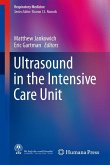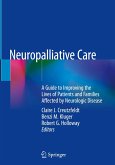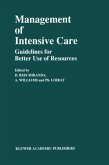This text is one of the first comprehensive resources on understanding and working with families in the intensive care unit. The text provides a conceptual overview of the Family ICU Syndrome, a constellation of physical morbidity, psychopathology, cognitive deficits, and conflict. Outlining its mechanisms, the book presents a guide to combating the syndrome with an interdisciplinary team. The text represents the full array of the interdisciplinary team by also spotlighting administrative considerations for health care management and approaches to training different members of the health care team. Family voices are featured prominently in the text as well. The book also addresses the complete trajectory of needs of care, including survivorship and end-of-life care. Written by experts in the field, Families in the Intensive Care Unit: A Guide to Understanding, Engaging and Supporting at the Bedside is a state-of-the-art reference for all clinicians who work with families in the ICU.
"This is a welcome book that aims to address the way intensive care medicine is practiced and the profound effects it can have on those closest to the patient. ... Families in the Intensive Care Unit can and should be read by health care professionals at any stage in their critical care career. This textbook is well written, and appropriately to the subject matter, each chapter strikes a perfect balance between being humanistic and technical." (Alexander White and Matteo Parotto, Anesthesia & Analgesia, Vol. 129 (3), September, 2019)
"This is a unique and important contribution that should be familiar to senior providers in critical care. As a multidisciplinary reference, it also should be available to the other disciplines working in the ICU. Failure to recognize the principles this book describes places both our ICU patients and their loved ones at risk." (David J. Dries, Doody's Book Reviews, February, 2019)
"This is a unique and important contribution that should be familiar to senior providers in critical care. As a multidisciplinary reference, it also should be available to the other disciplines working in the ICU. Failure to recognize the principles this book describes places both our ICU patients and their loved ones at risk." (David J. Dries, Doody's Book Reviews, February, 2019)








